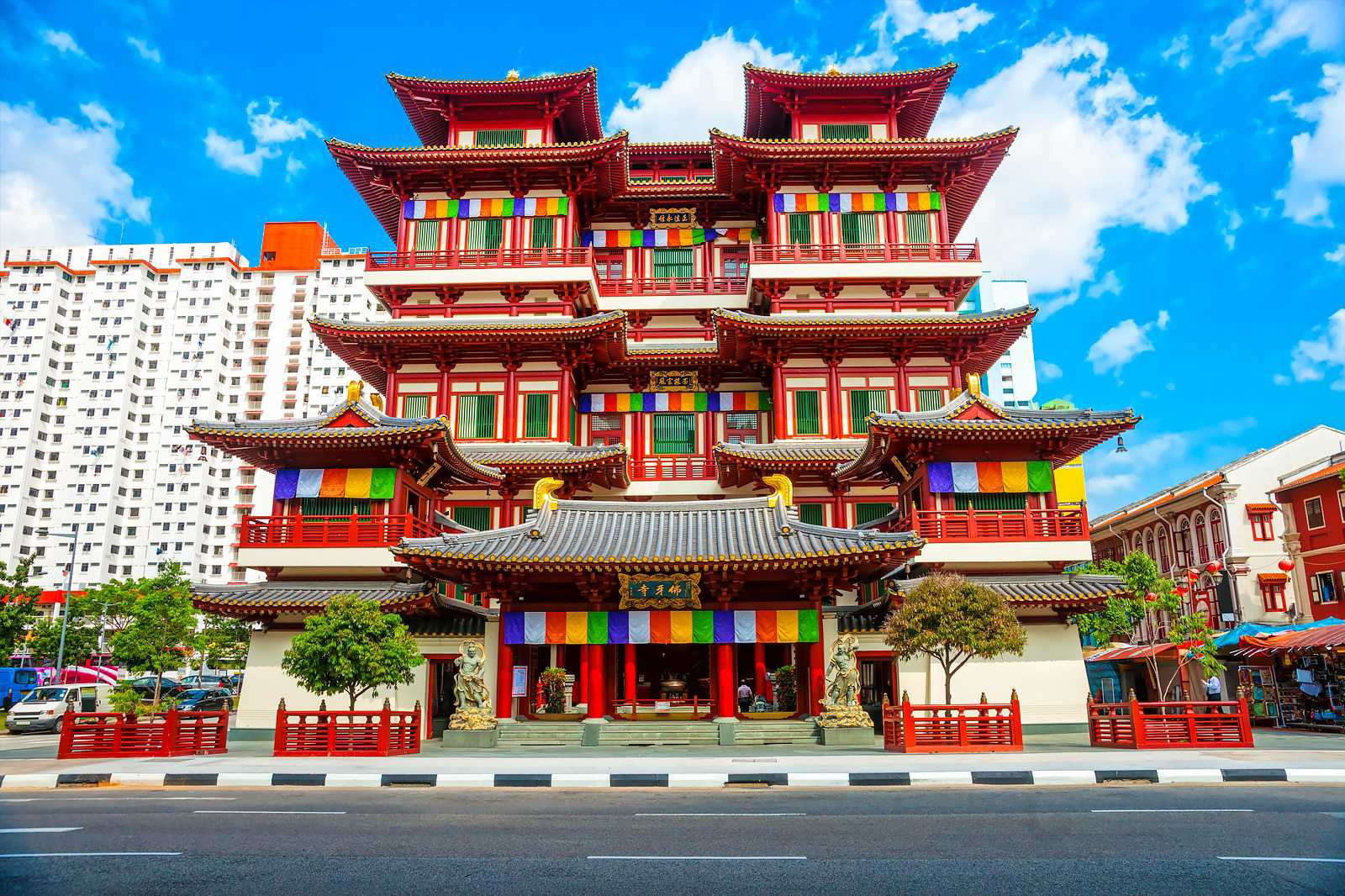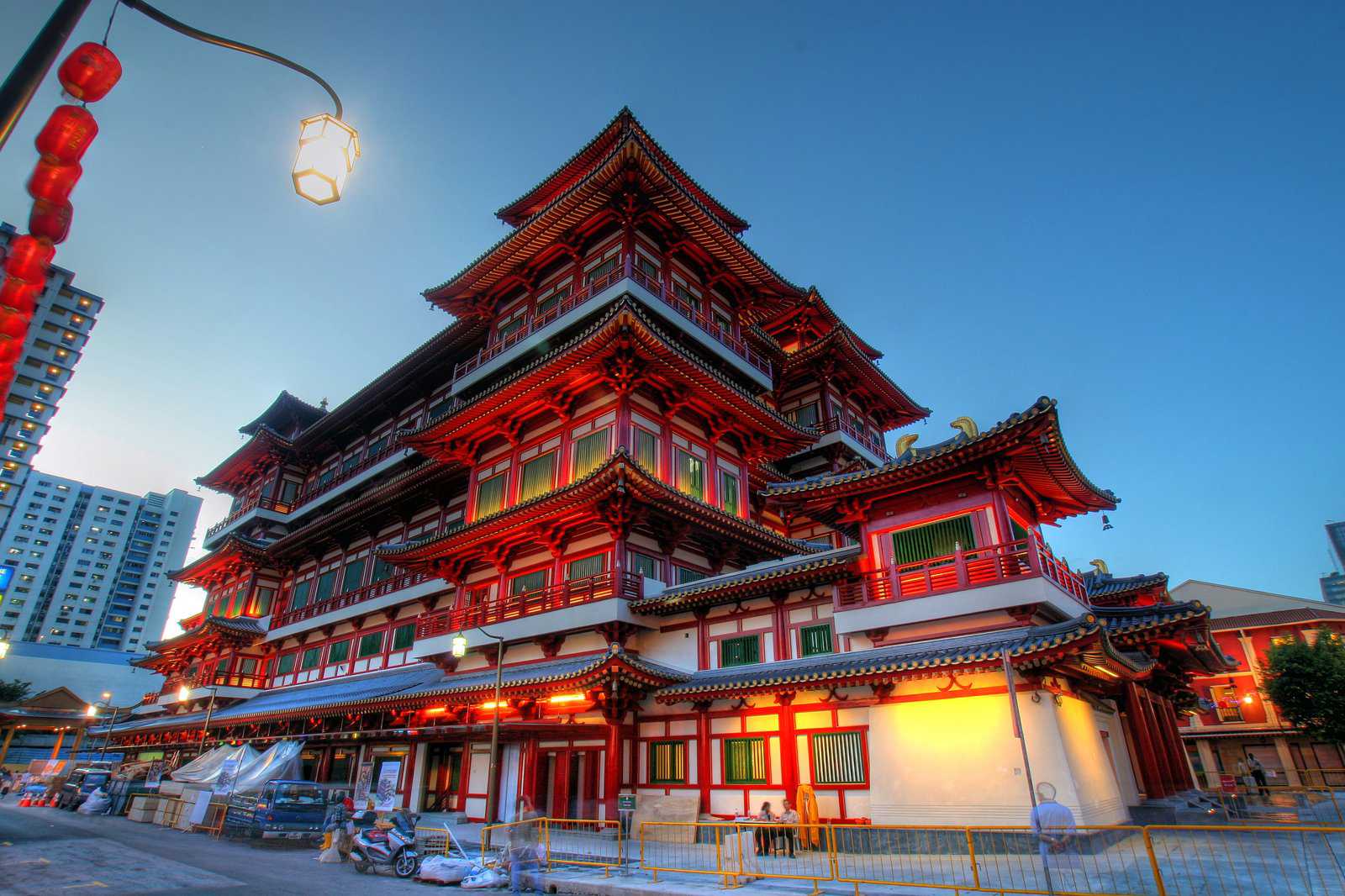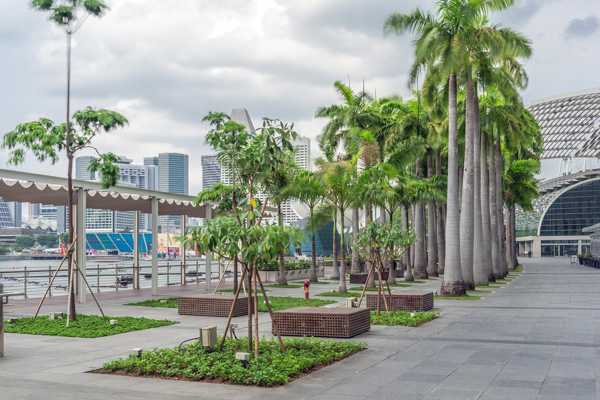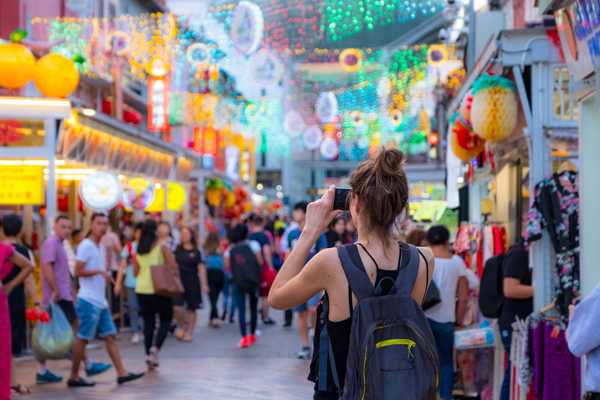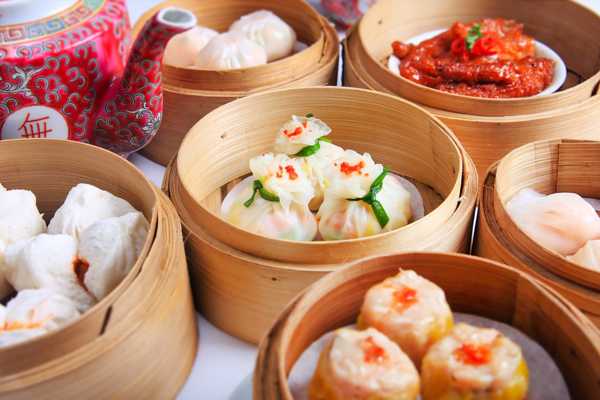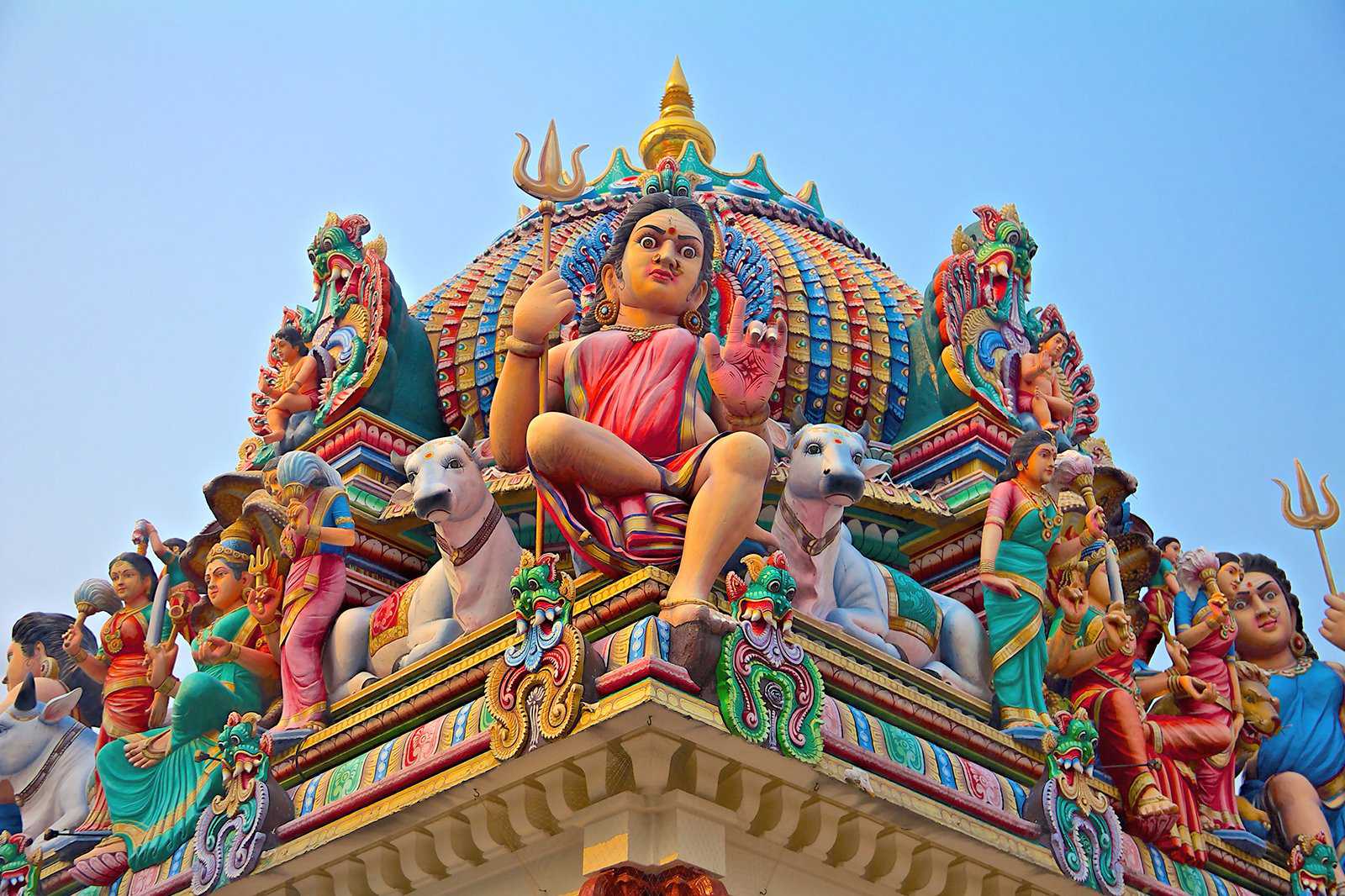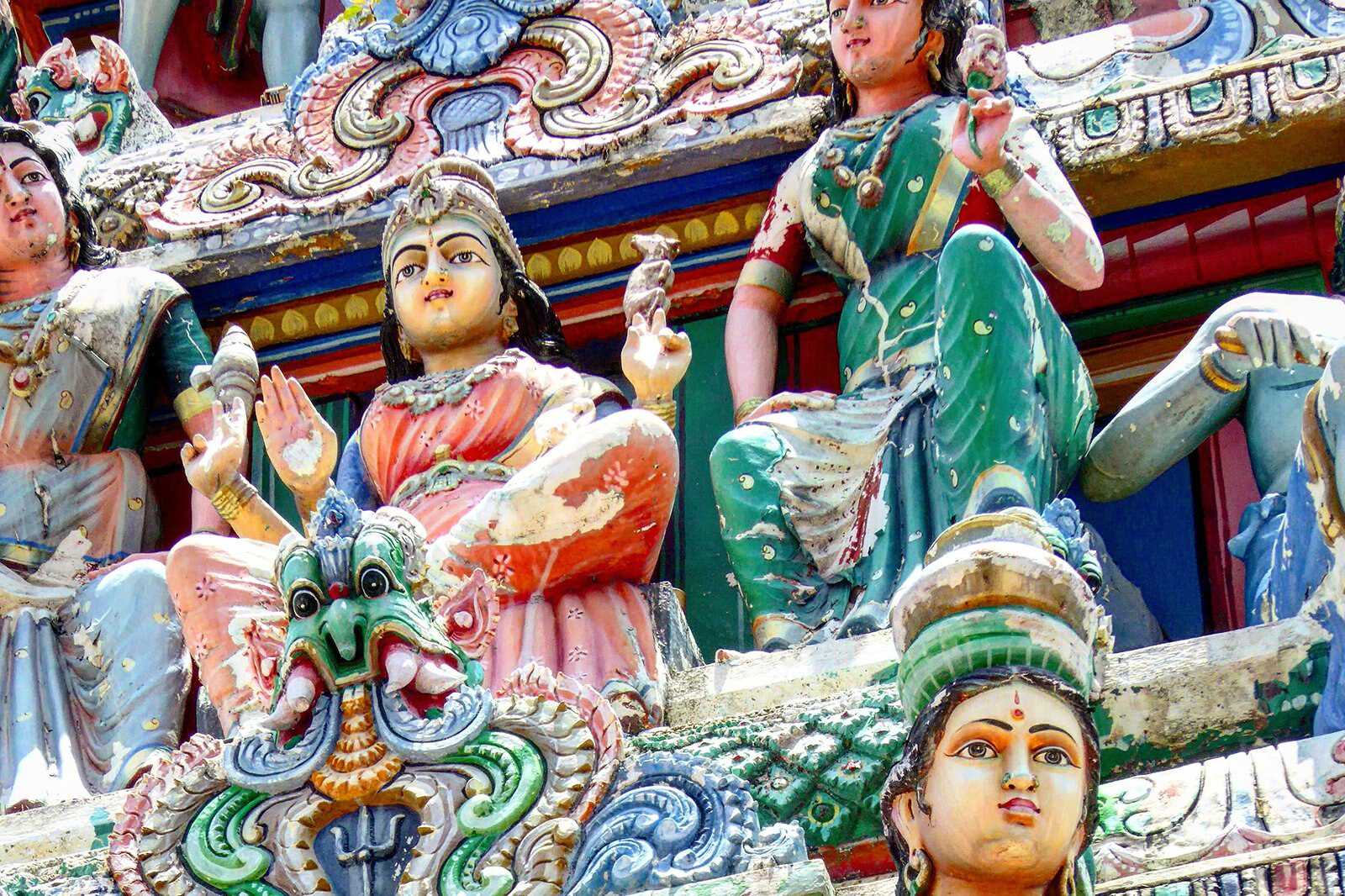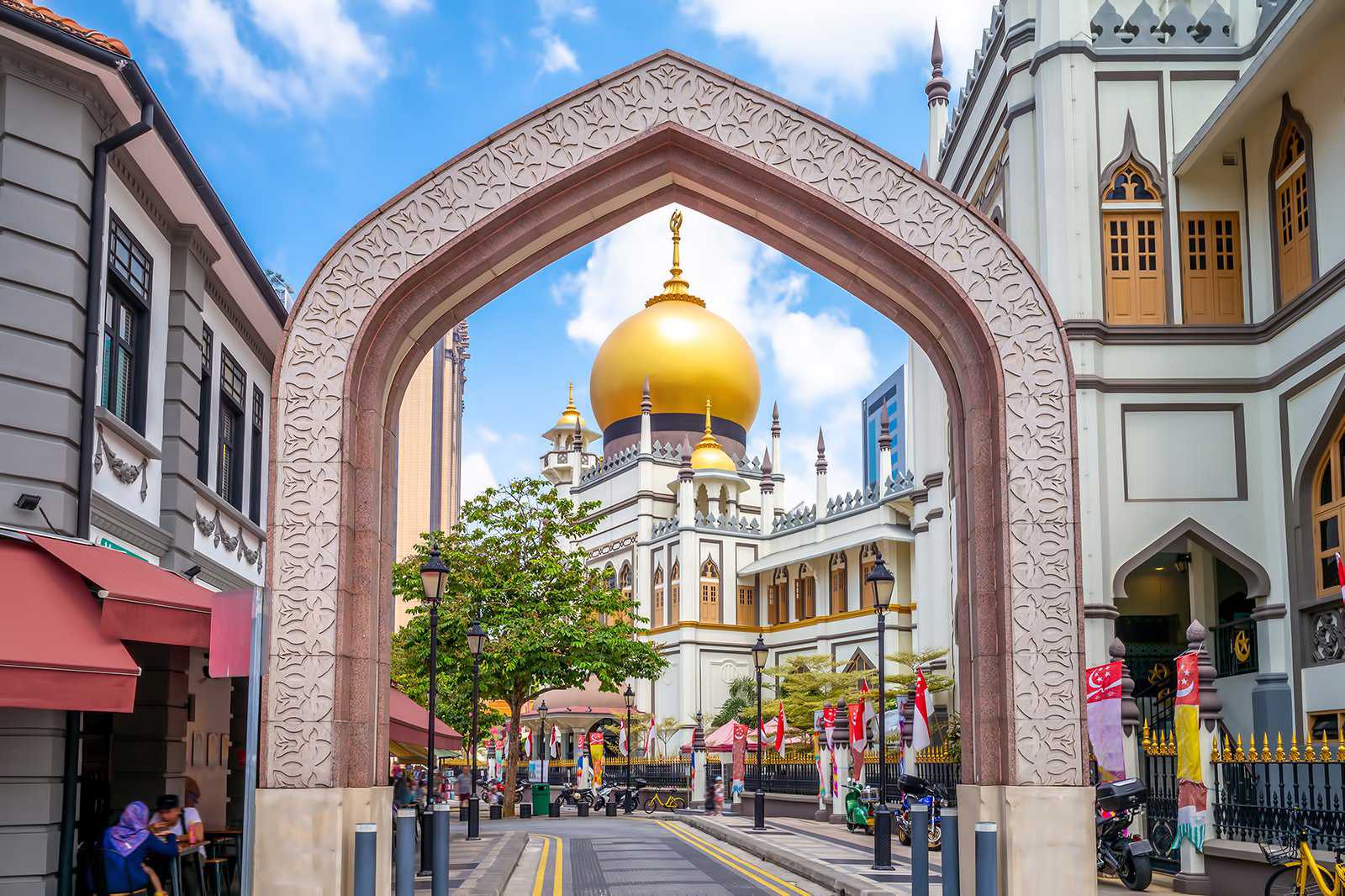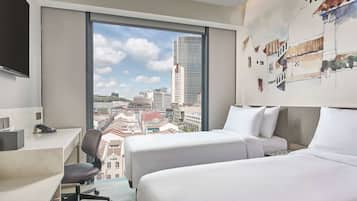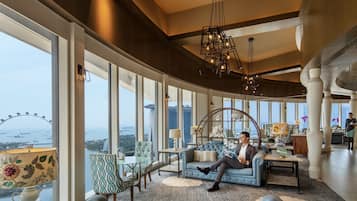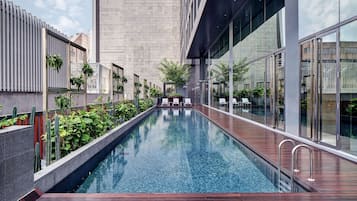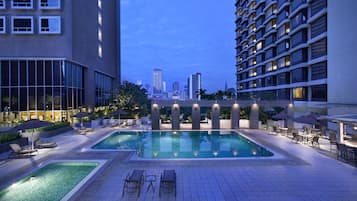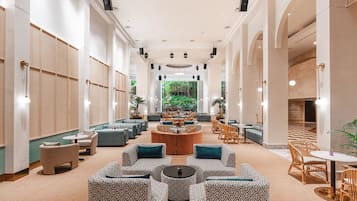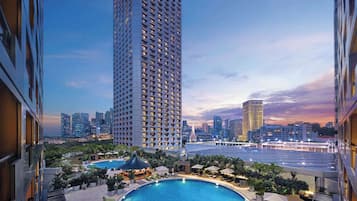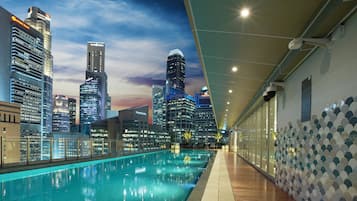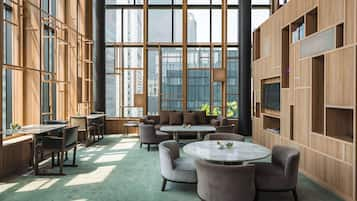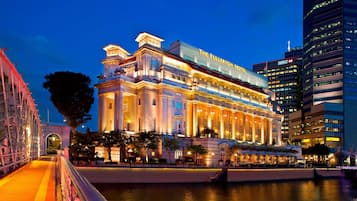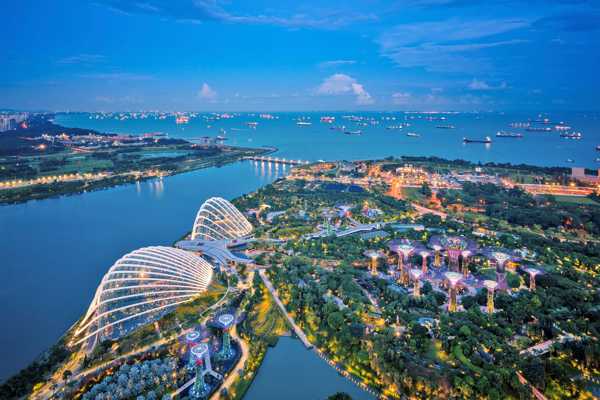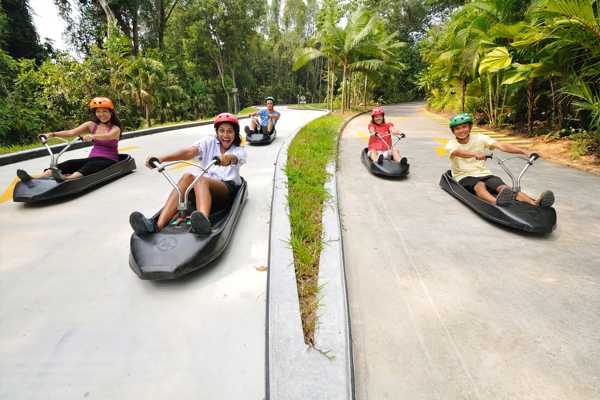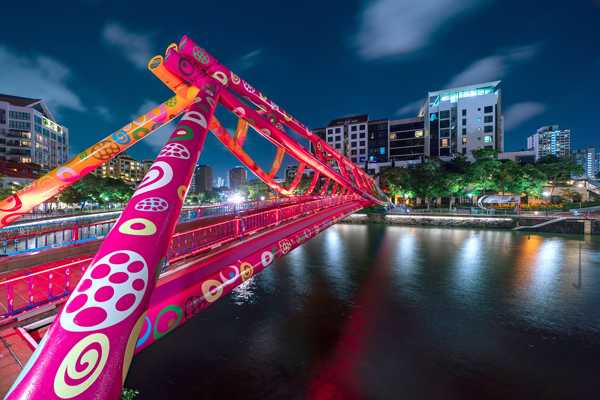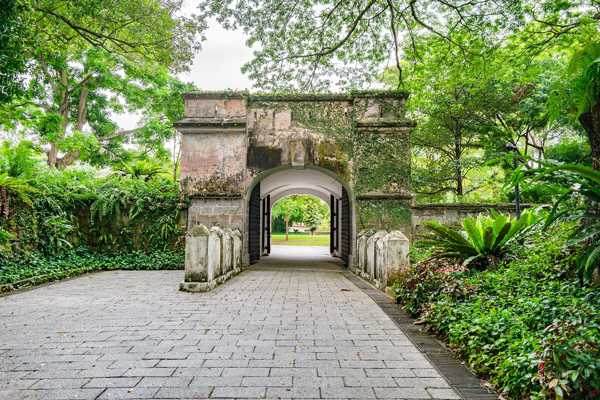Singapore is a place where you have total freedom to follow the precepts of your religion. There are many temple and churches in Singapore: Christianity, Islam, Judaism, Hinduism, Buddhism, and Taoism. All have their places of worship in the City of the Lion. These beautiful buildings are interesting to explore and can be found all over Singapore island.
- 1
Bright Hill Temple (Khong Meng San Phor Kark See Temple)
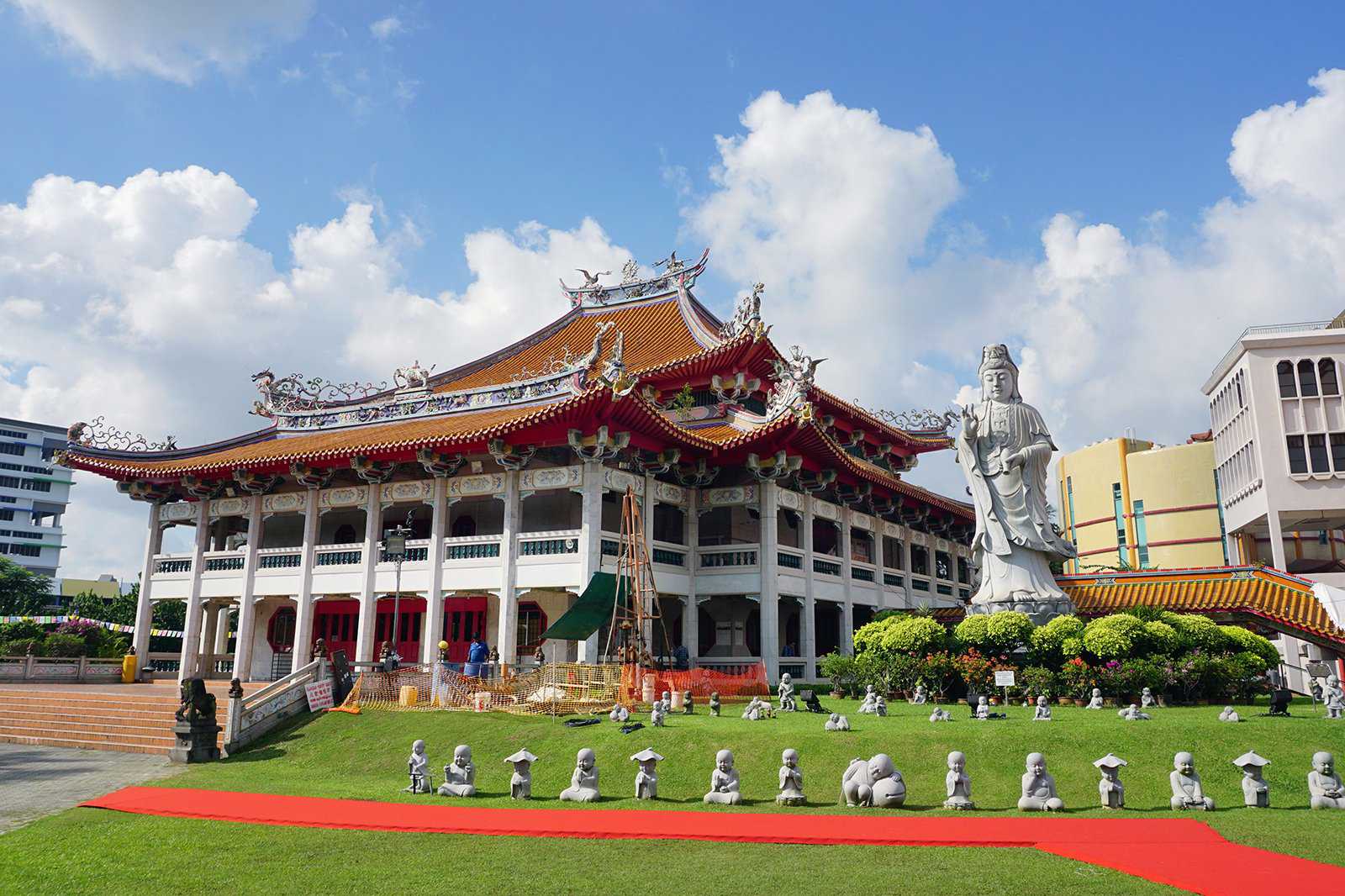
- ครอบครัว
- ประวัติศาสตร์
- ถ่ายรูป
Bright Hill Temple is one of the largest temples in Singapore, A modern construction covering 12 hectares, this impressive edifice features many grand halls, fine Chinese statues, shrines and decorations. There is also a large turtle pool, a serene garden and a crematorium in the temple grounds. There are many funerals and cremations at Bright Hill Temple on a daily basis, so it’s advised to dress respectfully.
ที่ตั้ง: 88 Bright Hill Road, Singapore 574117
โทร: +65 6849 5300
แผนที่ภาพโดย Anandajoti Bhikkhu (CC BY 2.0) เวอร์ชั่นแก้ไข
- ประวัติศาสตร์
- ถ่ายรูป
อ่านเพิ่มเติมThe Buddha Tooth Relic Temple is a remarkable 4-storey temple in Chinatown. When entering the gate, you’ll immediately notice the stunning main hall with its high ceiling. The bell tower and drum tower are on the same floor. However, the main focus for most visitors is the solid gold two-metre stupa on the fourth floor which is the place where the sacred relic is kept.
Continuing up to the roof, you'll find a pagoda that has a large prayer wheel. The temple is built in a style based on the Buddhist mandala and integrated with the Buddhism of the Tang dynasty.
ที่ตั้ง: 288 South Bridge Road, Singapore 058840
เปิด: Daily from 9 am to 6.30 pm
โทร: +65 6220 0220
แผนที่- 3
Kwan Im Thong Hood Cho Temple
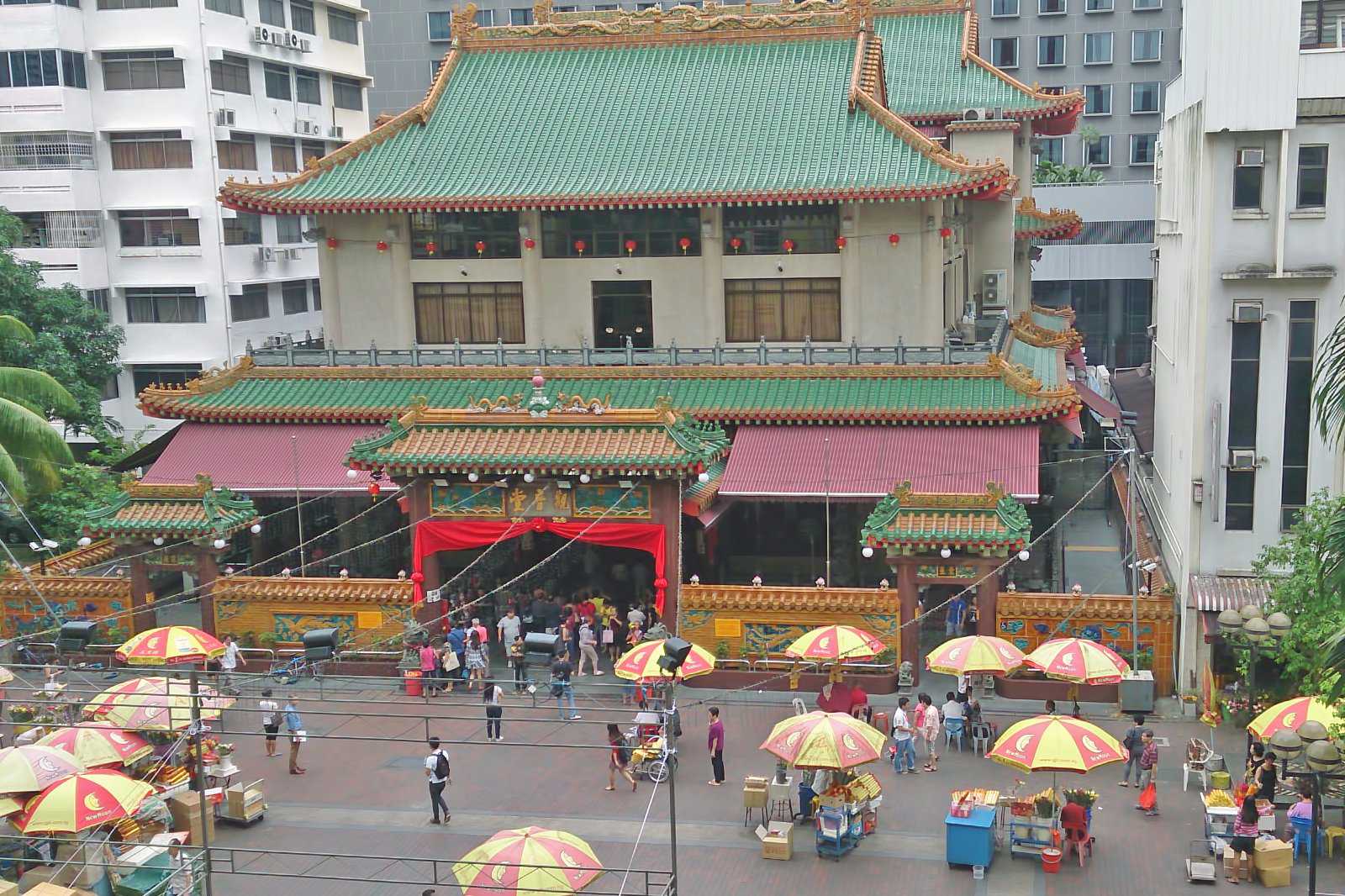
- ประวัติศาสตร์
- ถ่ายรูป
Located on Waterloo Street, Kwan Im Thong Hood Cho Temple is a famous Chinese temple that's dedicated to Kwan Im, the Goddess of Mercy.
Each day, large numbers of worshippers come to pay respect and ask for her blessing. This major temple features Chinese-style roofs, granite tiles and the use of red, golden and yellow throughout the building.
ที่ตั้ง: 178 Waterloo Street, Singapore 187964
โทร: +65 6337 3965
แผนที่ภาพโดย ProjectManhattan (CC BY-SA 3.0) เวอร์ชั่นแก้ไข
- 4
Leong San See Temple
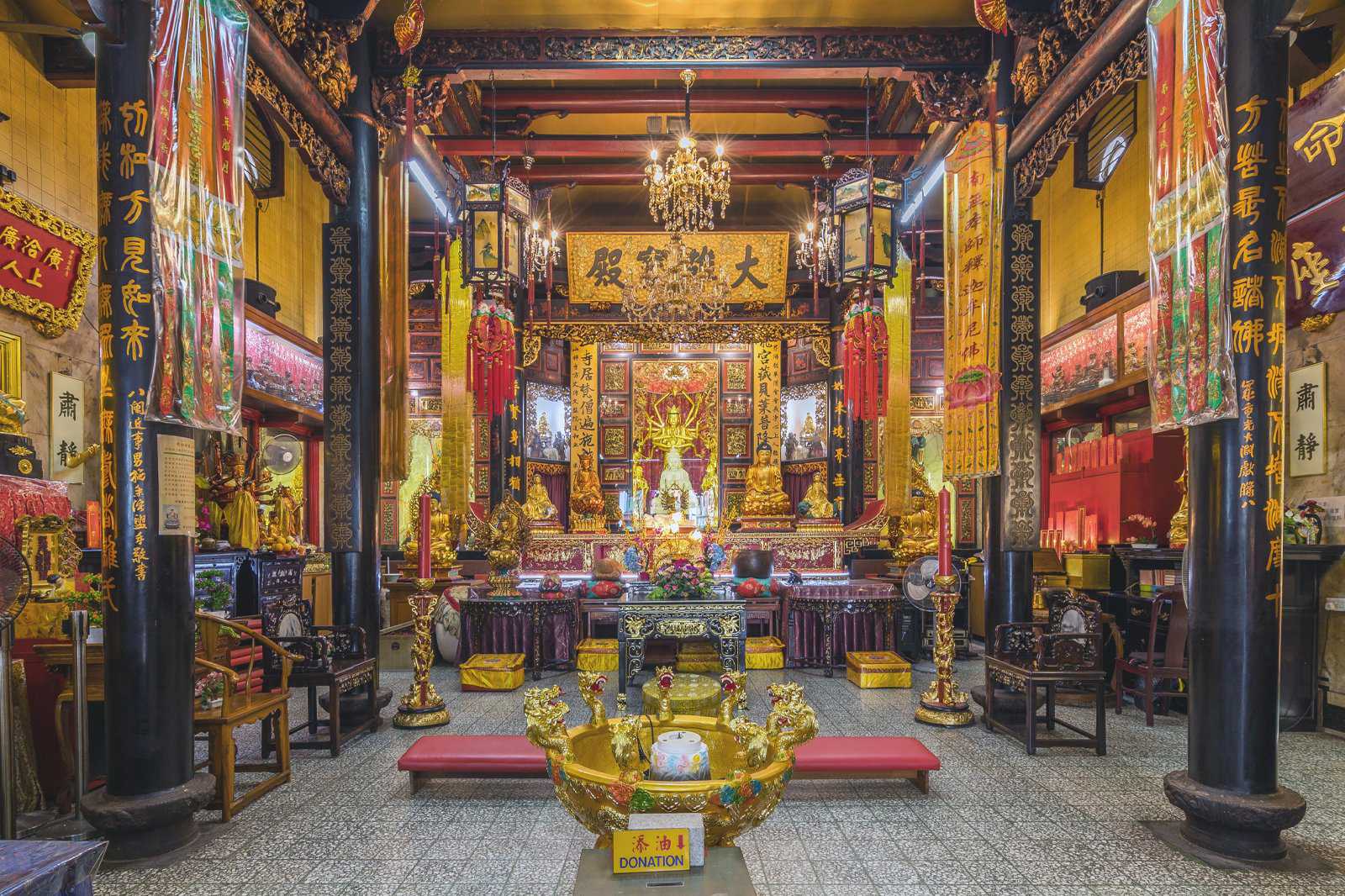
- ประวัติศาสตร์
- ถ่ายรูป
Leong San See is a Taoist temple located right across from a Thai Buddhist temple and was built to honour Guanyin (sometimes referred to as Guanyim), the Chinese Goddess of Mercy.
She is popular among childless couples who come to pray for its blessings. Bold reds and yellows are used throughout this temple and its main structure resembles a Chinese palace. It’s within walking distance from the Farrer Park MRT station.
ที่ตั้ง: 371 Race Course Road, Singapore 218641
เปิด: Daily from 6 am to 6 pm
โทร: +65 6298 9371
แผนที่ภาพโดย Basile Morin (CC BY-SA 4.0) เวอร์ชั่นแก้ไข
- 5
Siong Lim Temple
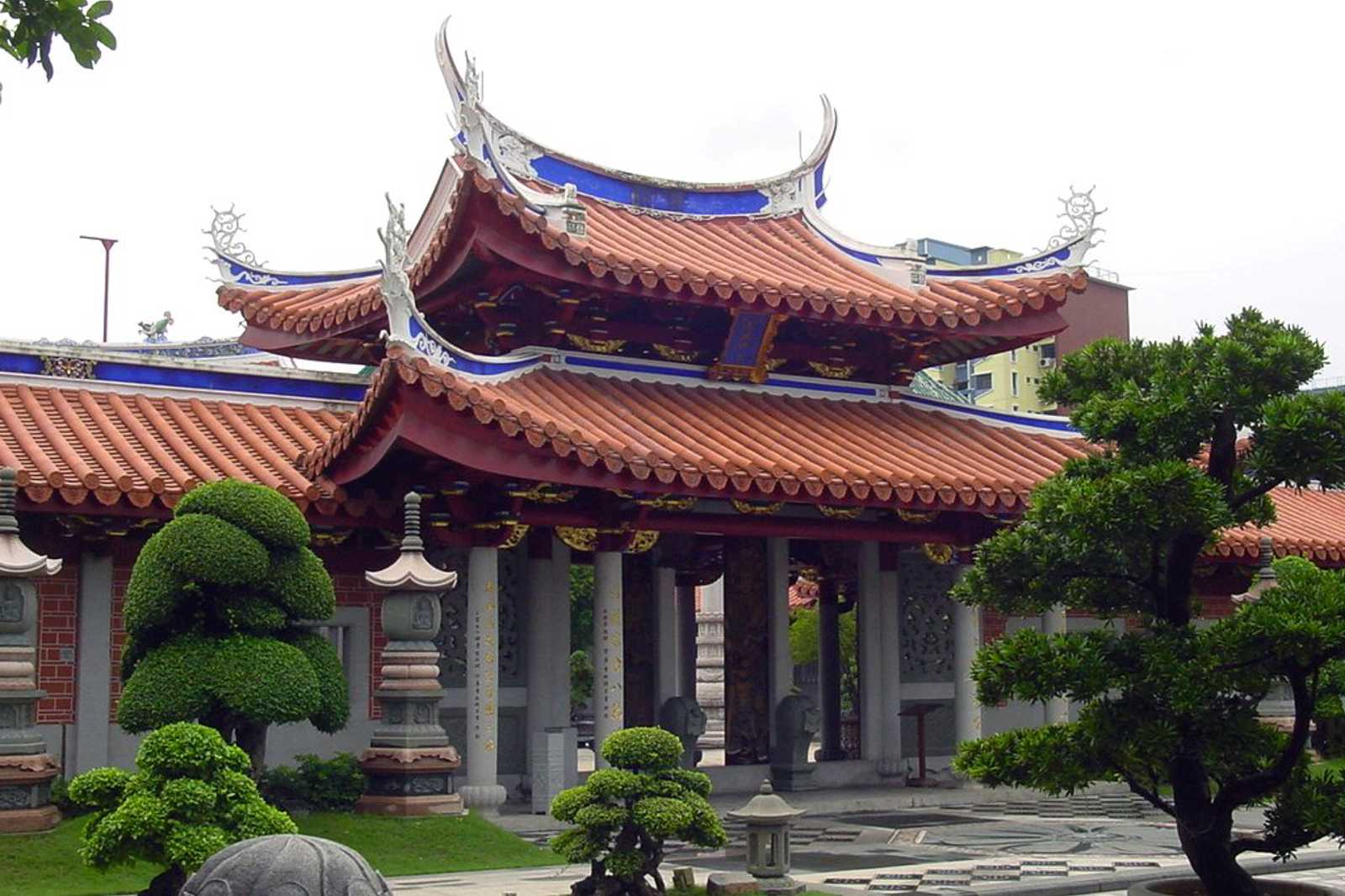
- ประวัติศาสตร์
- ถ่ายรูป
Siong Lim Temple was built in 1908, and is now classified a national monument in Singapore. The temple, which commemorates Buddha's birth and death, has a highly decorated gateway, accessible only by bridge, which opens into a courtyard. Inside the temple you will find huge incense burners and a beautifully carved Buddha imported from Thailand. The temple grounds also hold a monastery, a smaller temple and a rock garden.
ที่ตั้ง: 184E Jalan Toa Payoh, Singapore 319941
โทร: +65 6259 6924
แผนที่ภาพโดย TteckK (CC BY-SA 3.0) เวอร์ชั่นแก้ไข
- 6
Temple of 1,000 Lights (Sakyamuni Buddha Gaya Temple)
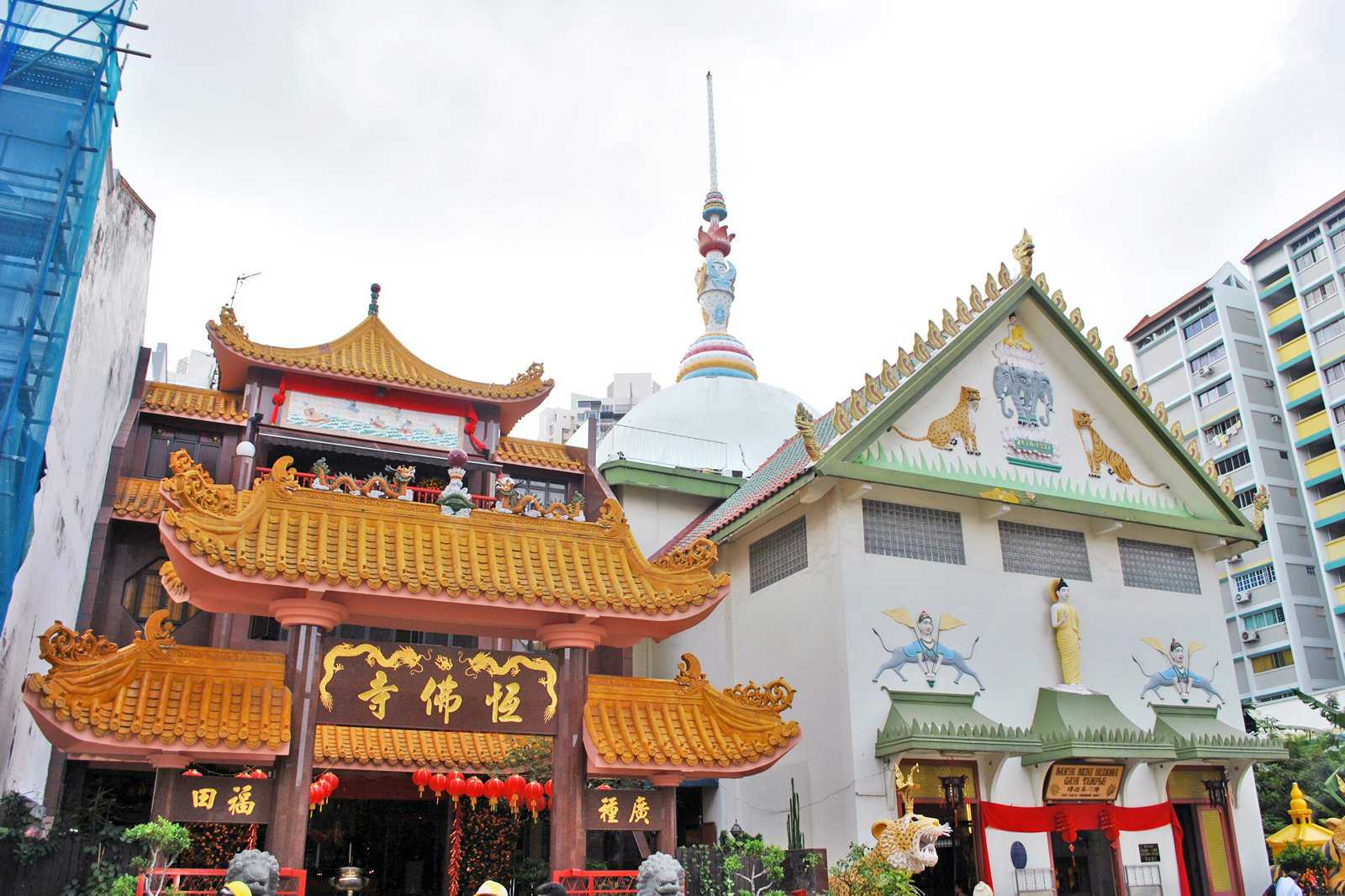
- ประวัติศาสตร์
Sakyamuni Buddha Gaya Temple was established by the Thai monk, Vuthisara, in 1927. The architecture is mainly in Thai style with a large 15-metre-high Buddha statue seated inside the temple as well as many smaller images. The Buddha image is surrounded by numerous light bulbs, which is why many people call it the Temple of 1,000 lights. Sakyamuni Buddha Gaya Temple is located close to the Farrer Park MRT station.
ที่ตั้ง: 366 Race Course Road, Singapore 218636
เปิด: Daily from 8 am to 4.45 pm
โทร: +65 6294 0714
แผนที่ภาพโดย Elisa.rolle (CC BY-SA 4.0) เวอร์ชั่นแก้ไข
- 7
Thian Hock Keng Temple

- ประวัติศาสตร์
- ถ่ายรูป
Thian Hock Keng, or the Temple of Heavenly Happiness, is the oldest and probably most interesting Chinese temple in Singapore. Built circa 1820, this Taoist-Buddhist temple was dedicated to to Ma Zu Po, the Mother of Heavenly Sages and the protector of sailors. You can find this colourful temple along Telok Ayer Street, in the middle of Chinatown
The temple, formerly at the waterfront before Singapore embarked on its land reclamation, was where many sailors and early settlers came to offer thanks for a safe journey by sea. The temple boasts elaborately painted doors, as well as highly-decorated beams and gold-leafed panels.
ที่ตั้ง: 158 Telok Ayer Street, Singapore 068613
เปิด: Daily from 7.30 am to 5.30 pm
โทร: +65 6423 4616
แผนที่ภาพโดย Zairon (CC BY-SA 4.0) เวอร์ชั่นแก้ไข
- ประวัติศาสตร์
- ถ่ายรูป
อ่านเพิ่มเติมThe oldest shrine in Singapore, Sri Mariamman Temple is one of the most prominent places of worship for Tamil Hindus in the country. It was built to honour Goddess Mariamman – the deity of disease and protection. Originally erected by Naraina Pillai, an Indian trader from Penang, in 1827, the temple was modified to its present structure in 1862, although it has undergone several renovations since. Apart from being a place of worship, the temple has also acted as an asylum for new immigrants that belong to South Indian Tamil Hindu community.
ที่ตั้ง: 244 S Bridge Road, Singapore 058793
เปิด: Daily from 7 am to 12 pm and 6 pm and 9 pm
โทร: +65 6223 4064
แผนที่- 9
Sri Krishnan Temple
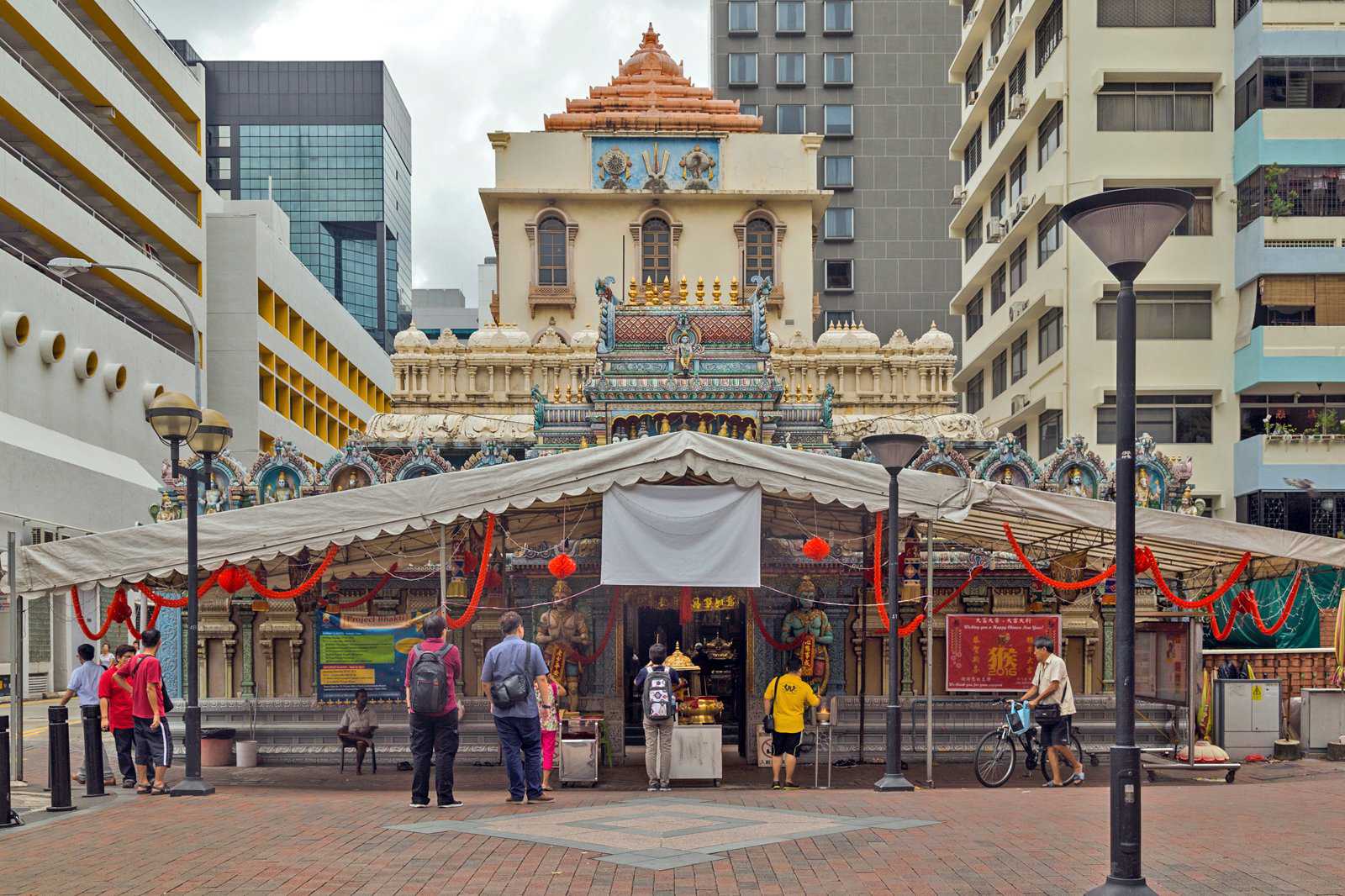
- ประวัติศาสตร์
Sri Krishnan is a Hindu temple dedicated to Sri Krishna and his consort Rukmini. Check out the impressive statues above the main entrance. The effigies of Hindu deities cover the roof and are presented in bold colours. It’s easy to find right next door to Kwan Im Thong Hood temple close to Bugis MRT.
ที่ตั้ง: 152 Waterloo Street, Singapore 187961
โทร: +65 6337 7957
แผนที่ภาพโดย Marcin Konsek (CC BY-SA 4.0) เวอร์ชั่นแก้ไข
- ประหยัด
- ประวัติศาสตร์
- ถ่ายรูป
อ่านเพิ่มเติมThis Hindu temple was built in 1855 and is dedicated to Perumal (or Vishnu). Visitors will be impressed by the legend of Vishnu’s nine reincarnations on the Gopuram. It was declared a national monument in 1978.
ที่ตั้ง: 397 Serangoon Road, Singapore 218123
เปิด: Daily from 6.30 am to midday and 6 pm to 9 pm
โทร: +65 6298 5771
แผนที่- 11
Sri Thandayuthapani Temple
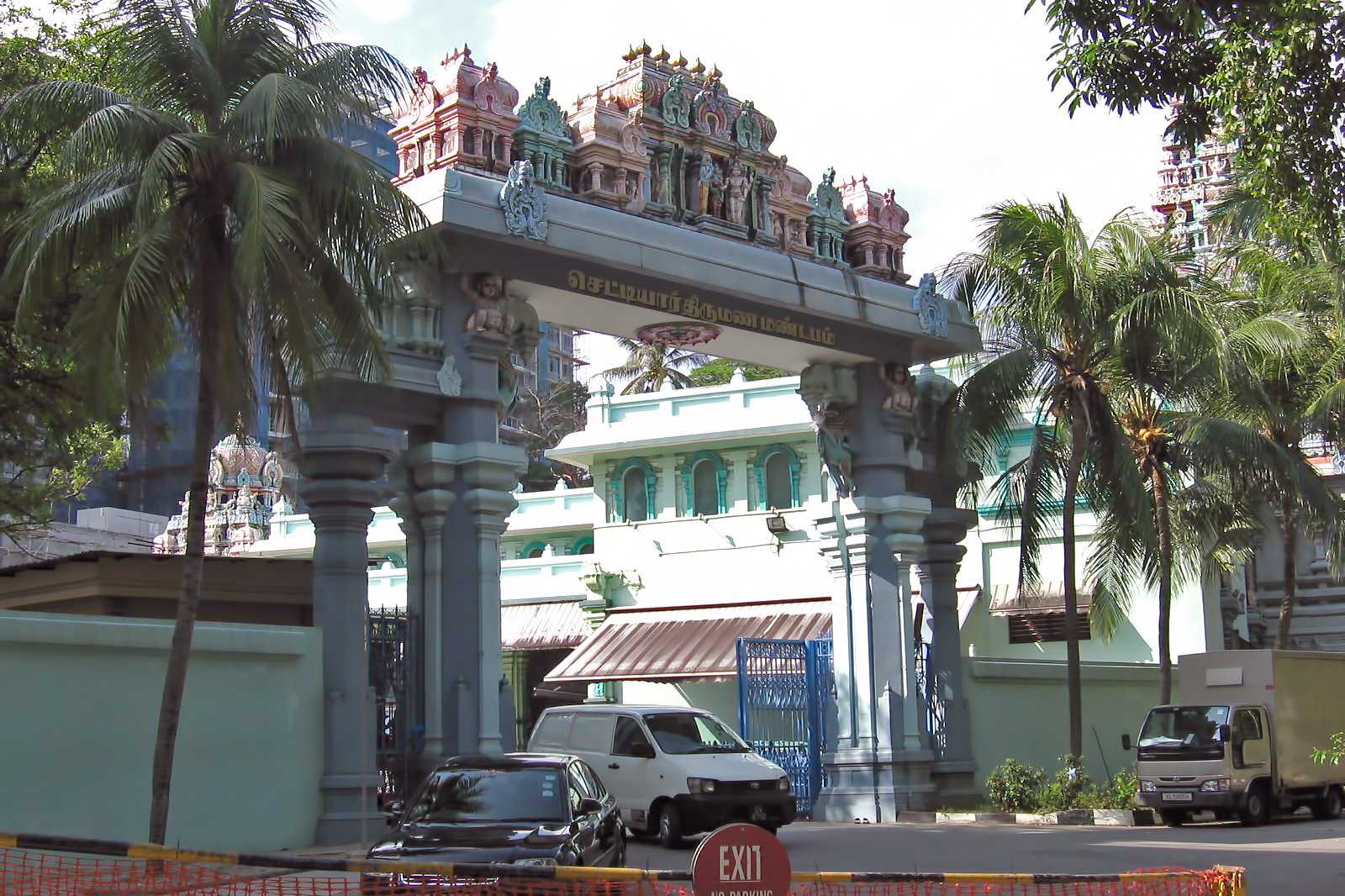
- ประวัติศาสตร์
Sri Thandayuthapani Temple, also known as the Chettiar Hindu Temple, was built on the site of a former temple dating back to the 1850s. Constructed in the South Indian style, it has a number of shrines with glass-panelled roofs that are angled to catch the rays of the sun when it rises and sets. Sri Thandayuthapani Temple is where the culminations of the Thaipusam and Navarathiri Festivals are held every year. The annual Thaipusam procession in February sees Hindu devotees bearing kavadi, or portable shrines pierced to the body, as a sign of faith and penance. The procession begins at the Sri Srinivasa Perumal Temple in Little India and ends at the Sri Thandayuthapani Temple.
The Navarathiri Festival, held in October, is the Hindu "9 Lights" celebration of the goddesses Dhurga, Lakshmi and Saraswathi. The Sri Thandayuthapani Temple is the focal point of the 9-day celebrations, which include dancing, music, joyous worship and a dramatic procession on the final night.
ที่ตั้ง: 15 Tank Road, Singapore 238065
โทร: +65 6737 9393
แผนที่ - 12
Sri Veeramakaliamman Temple
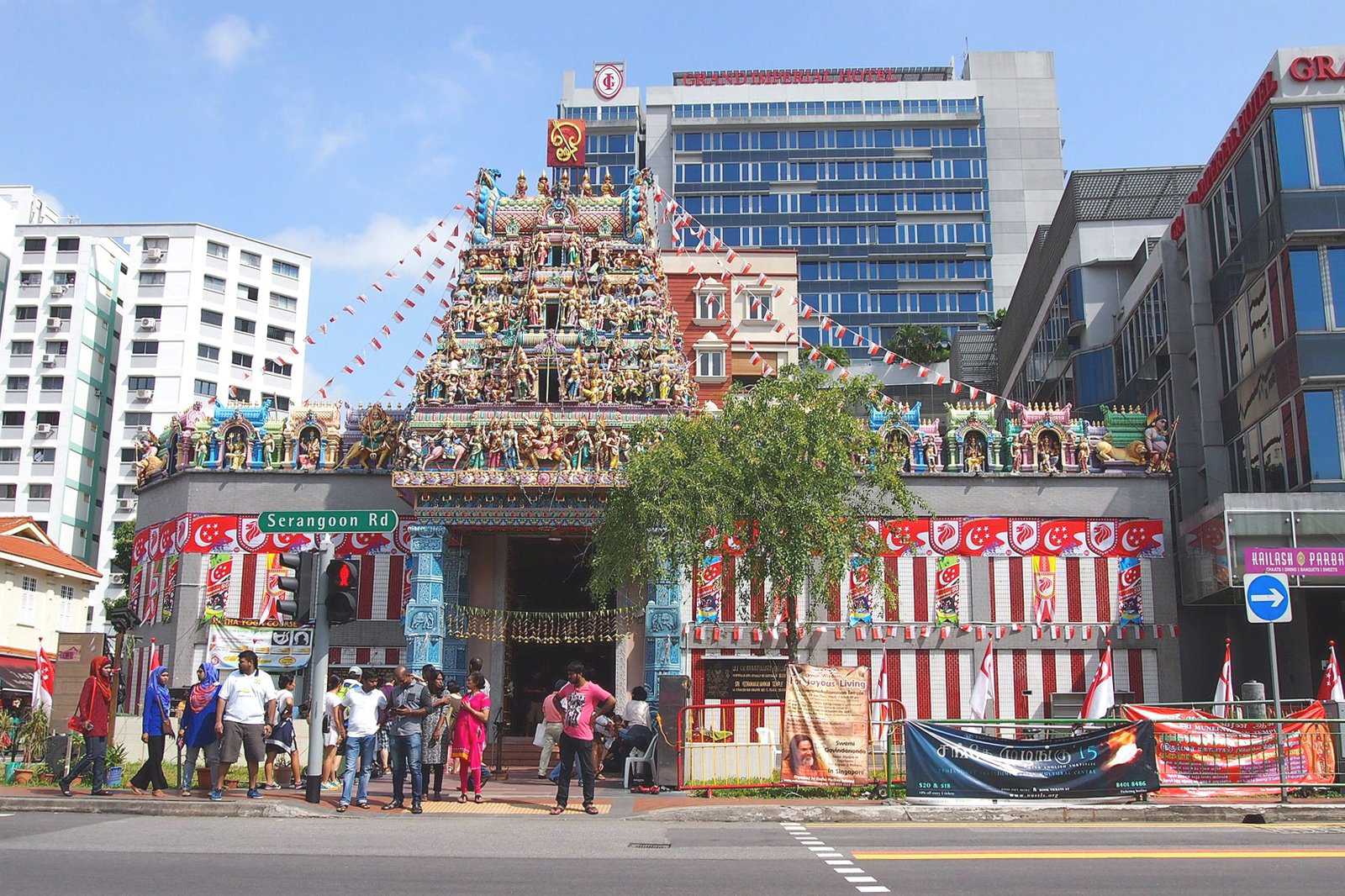
- ประวัติศาสตร์
Sri Veeramakaliamman Temple was built in 1881 to honour Hindu goddess Kali. Nowadays, it’s one of the busiest temples in Little India. The temple is filled with interesting reliefs with bold use of colour. Admission is free. As with all Hindu temples, please remember to remove your shoes when entering.
ที่ตั้ง: 141 Serangoon Road, Singapore 218042
เปิด: Daily from 8 am to 12.30 pm and from 4 pm and 8.30 pm
โทร: +65 6295 4538
แผนที่ - 13
Abdul Gaffoor Mosque
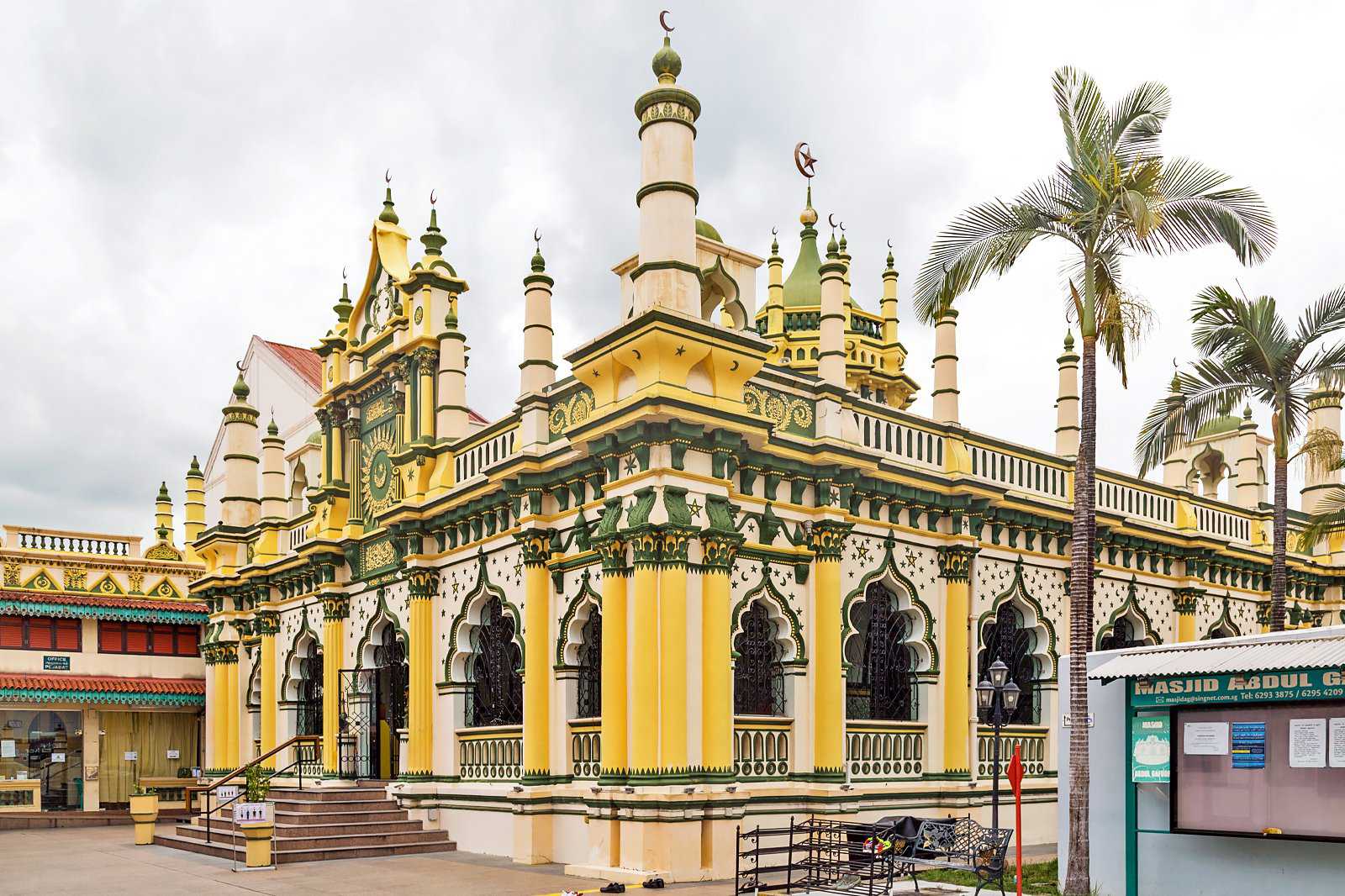
- ประวัติศาสตร์
- ถ่ายรูป
The original Abdul Gafoor Mosque was built in 1859 by a southern Indian lawyer's clerk named Shaik Abdul Gafoor Shaik Hyder to serve many of Indian Muslim merchants. The mosque has subsequently been through many restorations. The current one was completed in 2003. The mosque is a mixture of Arabian, South Indian and Roman styles with its many arches and central onion dome.
ที่ตั้ง: 41 Dunlop Street, Singapore 209369
เปิด: Daily from 7 am to midday and 2.30 pm to 4.30 pm
แผนที่ภาพโดย Marcin Konsek (CC BY-SA 4.0) เวอร์ชั่นแก้ไข
- 14
Al-Abrar Mosque

- ประวัติศาสตร์
Al-Abrar Mosque was built in 1827, and was originally just a small building so many people took to calling it the ‘hut mosque’ as its nickname. The present building was erected in the 1850s and went though a major renovation in 1980s. You can find Al-Abrar Mosque in downtown Singapore, close to the Telok Ayer MRT station.
ที่ตั้ง: 192 Telok Ayer Street, Singapore 068635
โทร: +65 6220 6306
แผนที่ภาพโดย Marcin Konsek (CC BY-SA 4.0) เวอร์ชั่นแก้ไข
- 15
Hajjah Fatimah Mosque
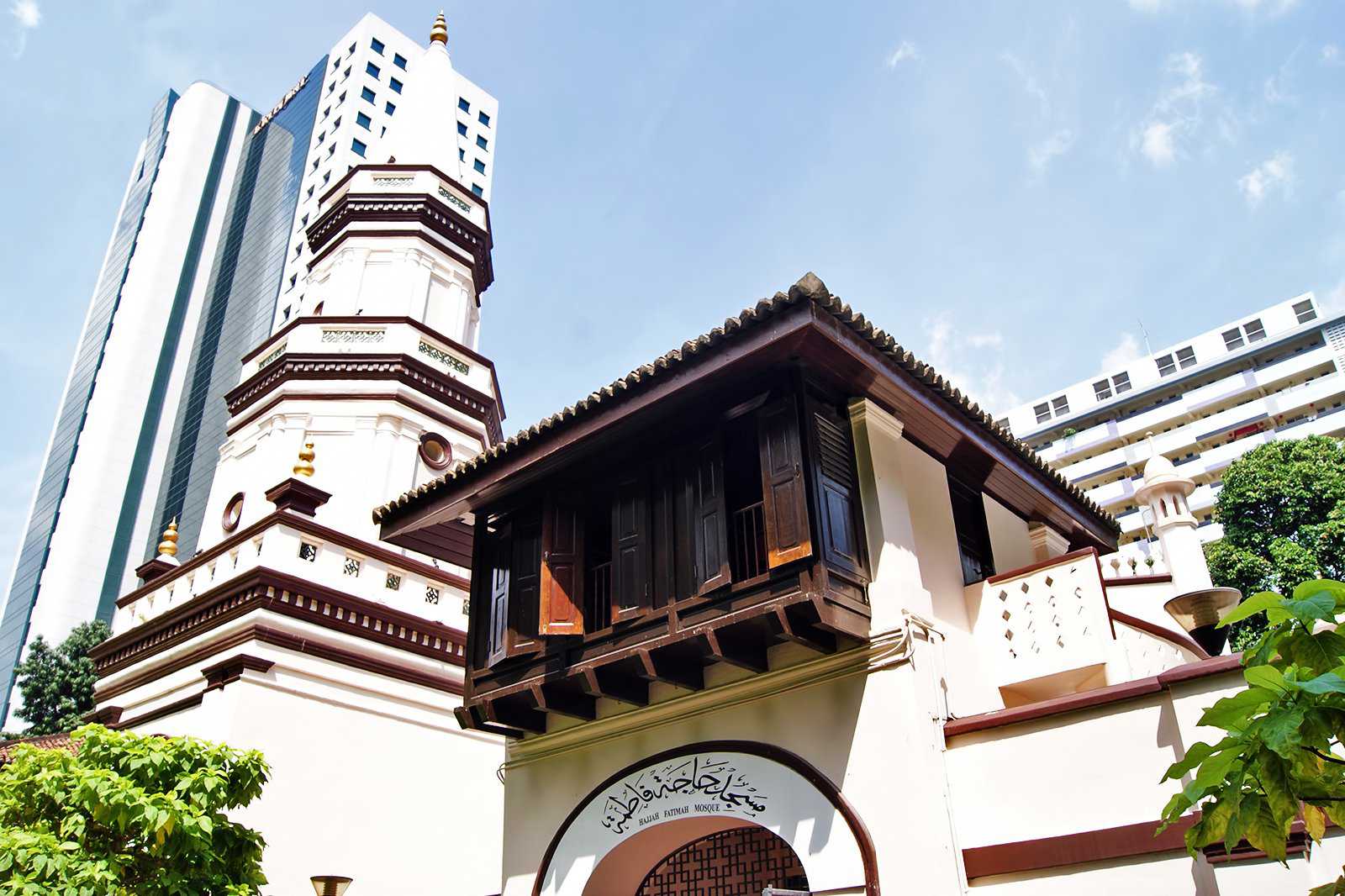
- ประวัติศาสตร์
Hajjah Fatimah Mosque was built in 1846 and named after a charitable Malay woman who donated money to build it. The beautiful design is a mix of Malay and colonial styles. At the back of the Mosque you’ll find a number of old tombstones, including Hajjah Fatimah's.
ที่ตั้ง: 4001 Beach Road, Singapore 199584
โทร: +65 6297 2774
แผนที่ภาพโดย Jack at Wikipedia (CC BY-SA 2.0) เวอร์ชั่นแก้ไข
- ประหยัด
- ประวัติศาสตร์
- ถ่ายรูป
อ่านเพิ่มเติมOne of the biggest mosques in Singapore, the Sultan Mosque is situated at North Bridge Road, near the ethnic quarter of Arab Street. It was originally built by Sultan Hussain Shah of Johore in 1824.
In 1928, the original structure was replaced by the current mosque, which was designed by Denis Santry. The Sultan Mosque has a massive golden dome and a large prayer hall.
ที่ตั้ง: 3 Muscat Street, Singapore 198833
เปิด: Daily from 9 am to 1 pm and from 2 pm to 4 pm
โทร: +65 6293 4405
แผนที่- 17
Cathedral of the Good Shepherd
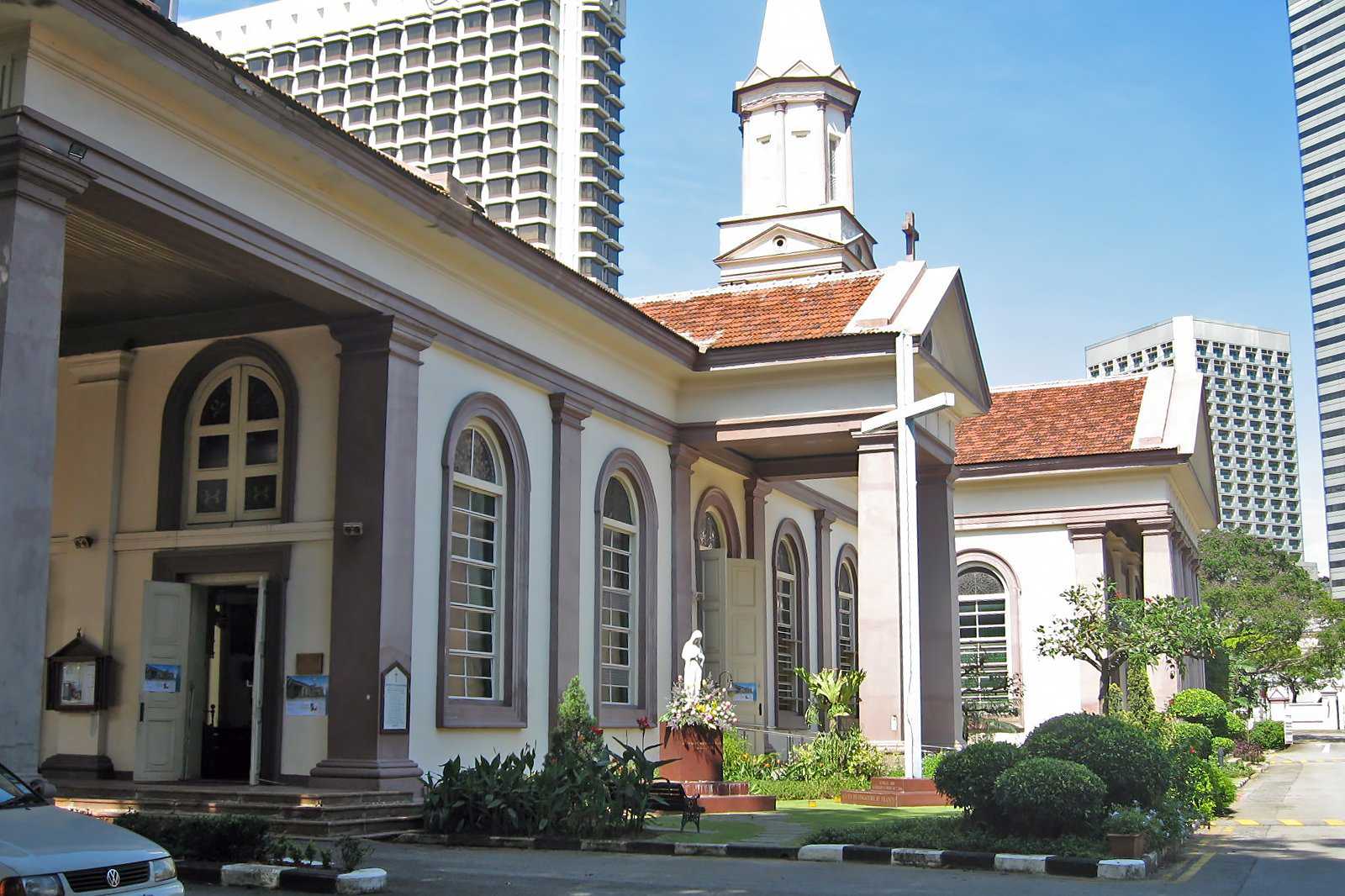
- ประวัติศาสตร์
- ถ่ายรูป
The Cathedral of the Good Shepherd is one of the oldest Catholic churches in Singapore, dating back to 1843. Its construction actually triggered all-out competition between two great colonial architects of the time, D L Sweeney and J T Thomson. Thomson's design was eventually chosen, and a 3rd architect, Charles Dyce, added a tower and a spire 1 year later. Located on Queen Street, the church is now a designated national monument.
ที่ตั้ง: A Queen Street, City Centre, Singapore 188533
โทร: +65 6337 2036
แผนที่ภาพโดย Terence Ong (CC BY-SA 3.0) เวอร์ชั่นแก้ไข
- 18
Church of St Gregory the Illuminator
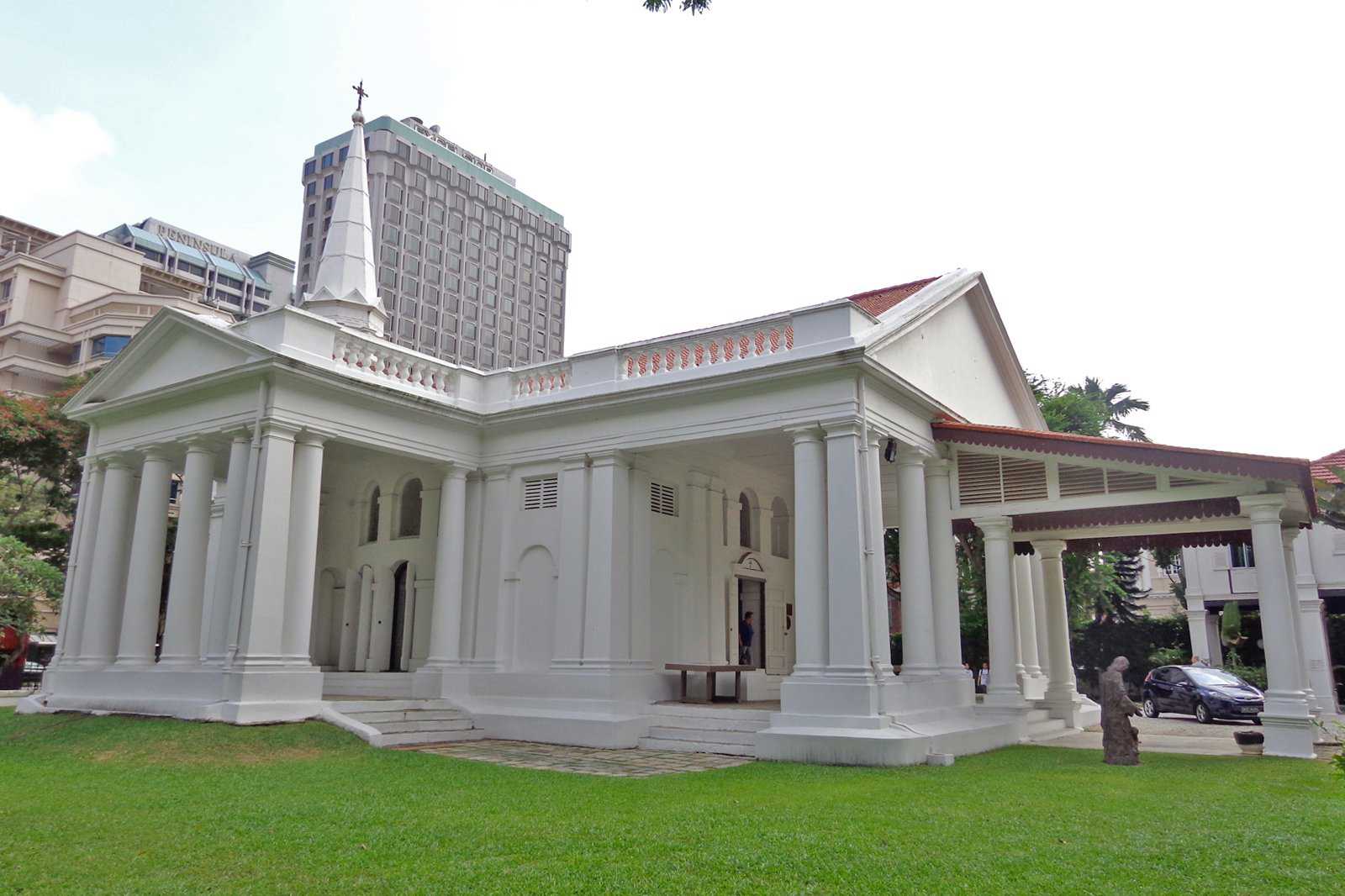
- ประหยัด
- ประวัติศาสตร์
- ถ่ายรูป
Church of St Gregory the Illuminator is an Armenian church built in 1835. It is dedicated to St Gregory, the first monk of the Armenian church. Now a national monument, the church is considered a masterpiece and was designed by colonial architect, George Coleman.
ที่ตั้ง: 60 Hill Street, Singapore 179366
โทร: +65 6334 0141
แผนที่ภาพโดย Iloilo Wanderer (CC BY-SA 4.0) เวอร์ชั่นแก้ไข
- 19
St Andrew's Cathedral
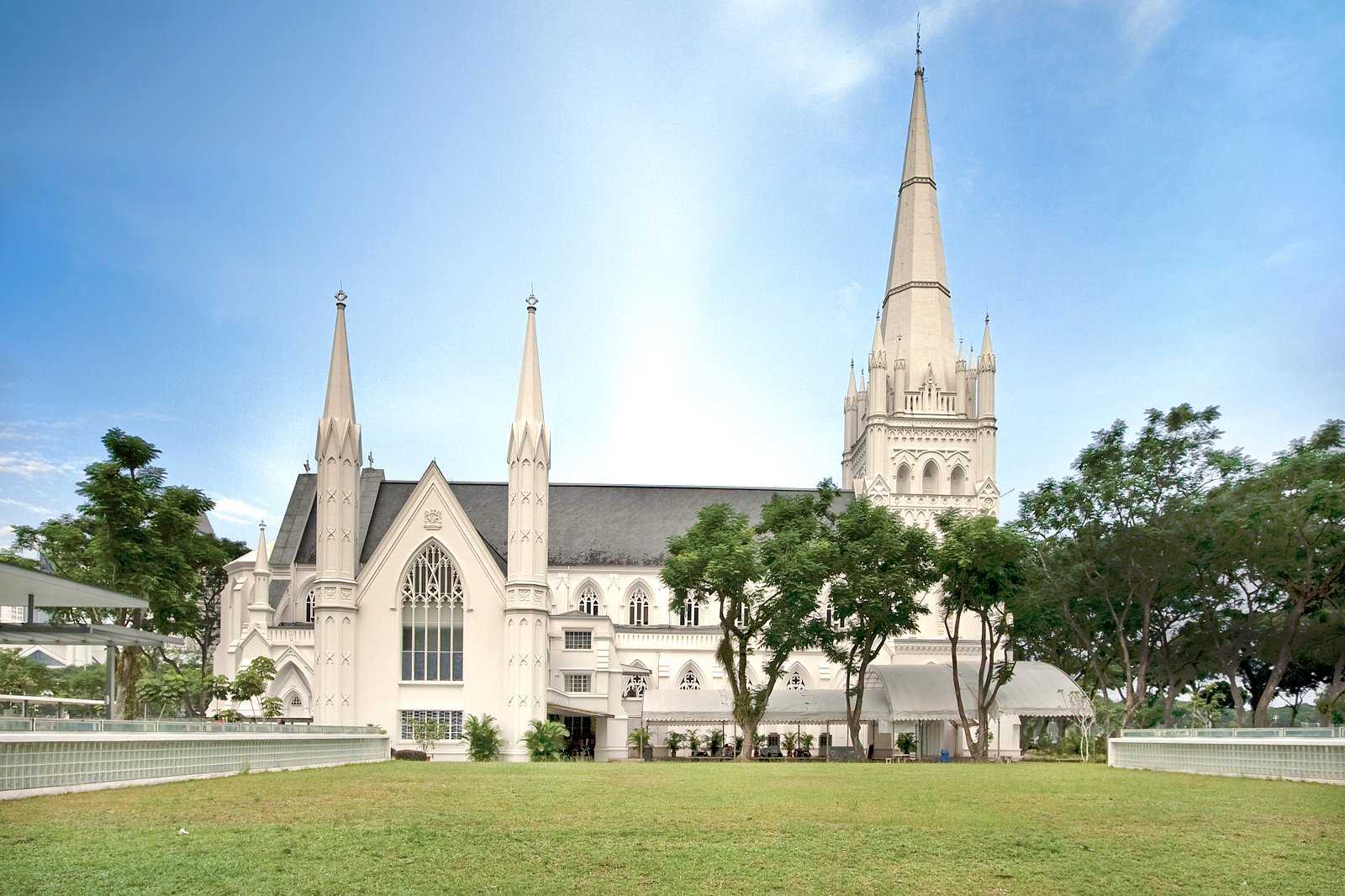
- ประหยัด
- ประวัติศาสตร์
- ถ่ายรูป
This elegant Anglican cathedral at St Andrew's Street was built after its predecessor, a church built by G D Coleman in 1938, was destroyed in 1852 by lightning strikes. The present cathedral was designed by Ronald MacPherson in 1856. A visitors centre at the church displays photos, pictures, artefacts and a video of the church's history. Guided tours are also available.
ที่ตั้ง: 11 Street Andrew's Road, Singapore 178959
โทร: +65 6337 6104
แผนที่ภาพโดย Someformofhuman. (CC BY-SA 3.0) เวอร์ชั่นแก้ไข
- 20
Central Sikh Temple
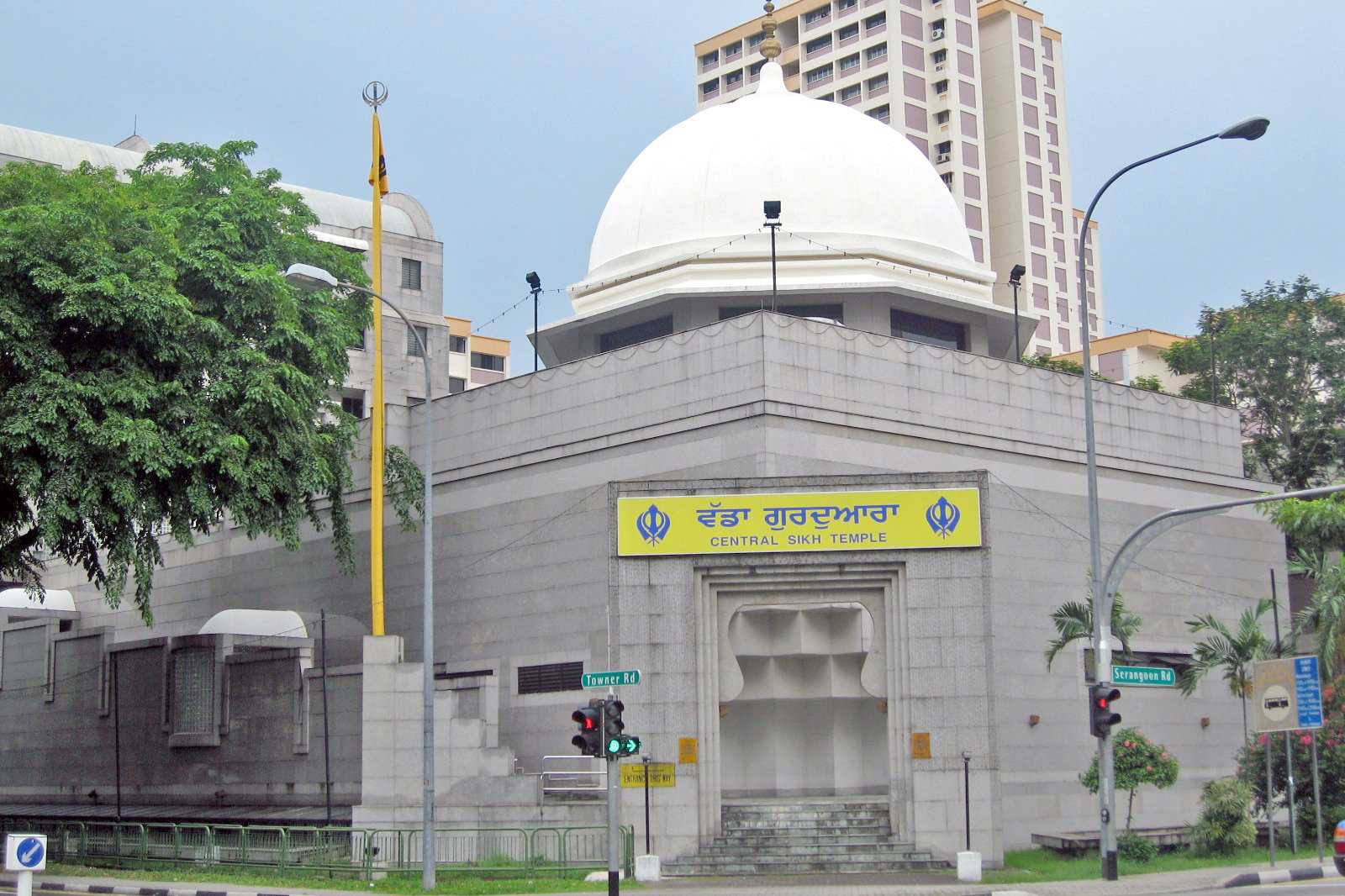
- ประหยัด
- ประวัติศาสตร์
- ถ่ายรูป
The Central Sikh Temple at Towner Road is where many of Singapore's 15,000 Sikhs come to worship. It was built to commemorate the 518th birthday of Guru Nanak, the first Sikh guru, and houses the Granth Sahih, or holy book. A striking building of white marble, the Central Sikh Temple won the Singapore Institute of Architects' Design Award in 1986.
ที่ตั้ง: 2 Towner Road, Singapore 327804
โทร: +65 6299 3855
แผนที่ภาพโดย Terence Ong (CC BY-SA 3.0) เวอร์ชั่นแก้ไข
- 21
Maghain Aboth Synagogue
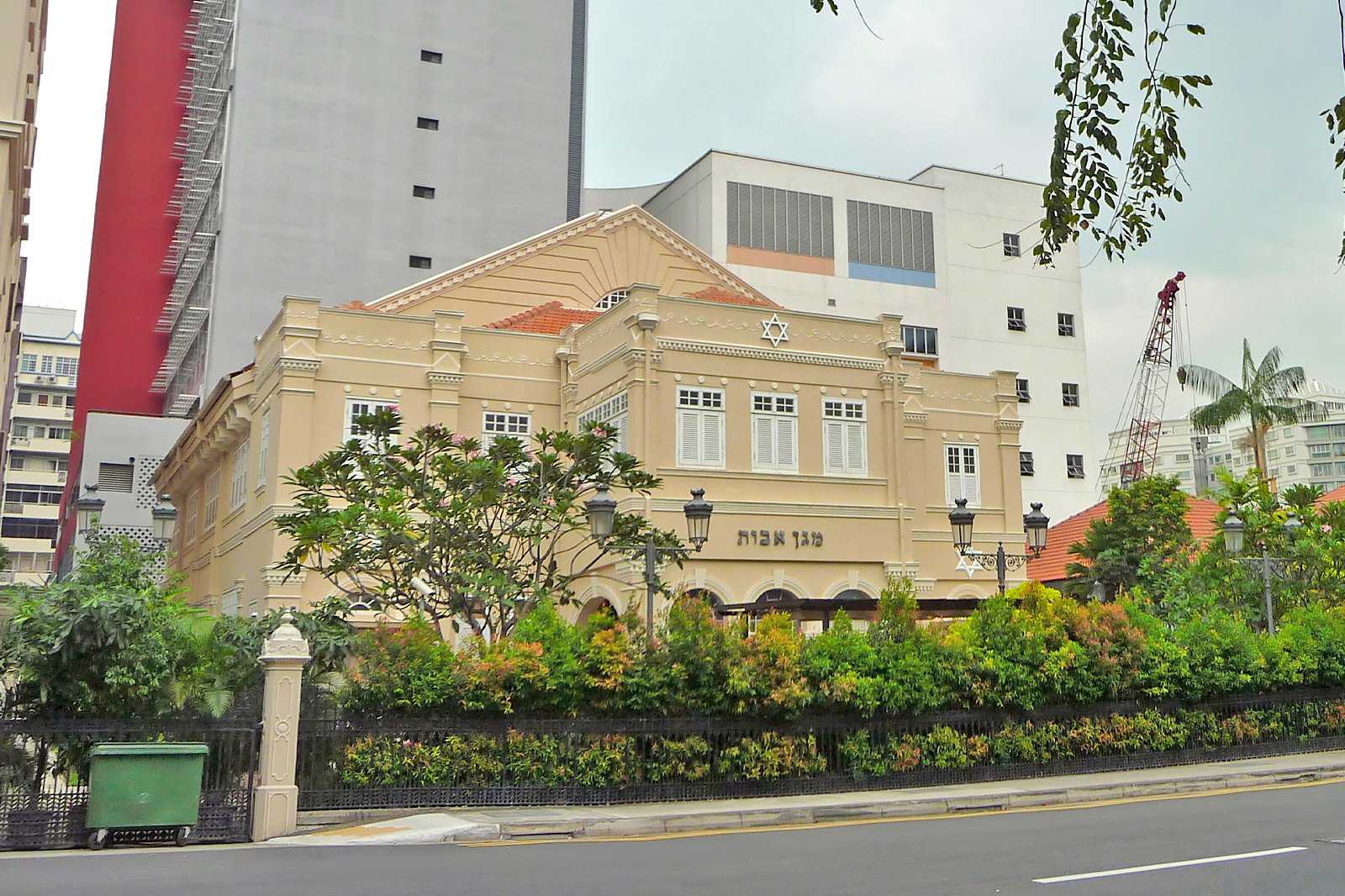
- ประหยัด
- ประวัติศาสตร์
- ถ่ายรูป
Maghain Aboth Synagogue at Waterloo Street was built by Singapore's small but significant Jewish community. Its architecture veers towards the Victorian. Built in 1878, it's widely known as one of the oldest Jewish places of worship in Southeast Asia.
ที่ตั้ง: 24/26 Waterloo Street, Singapore 187968
โทร: +65 6337 2189
แผนที่ภาพโดย Ondřej Žváček (CC BY-SA 3.0) เวอร์ชั่นแก้ไข
